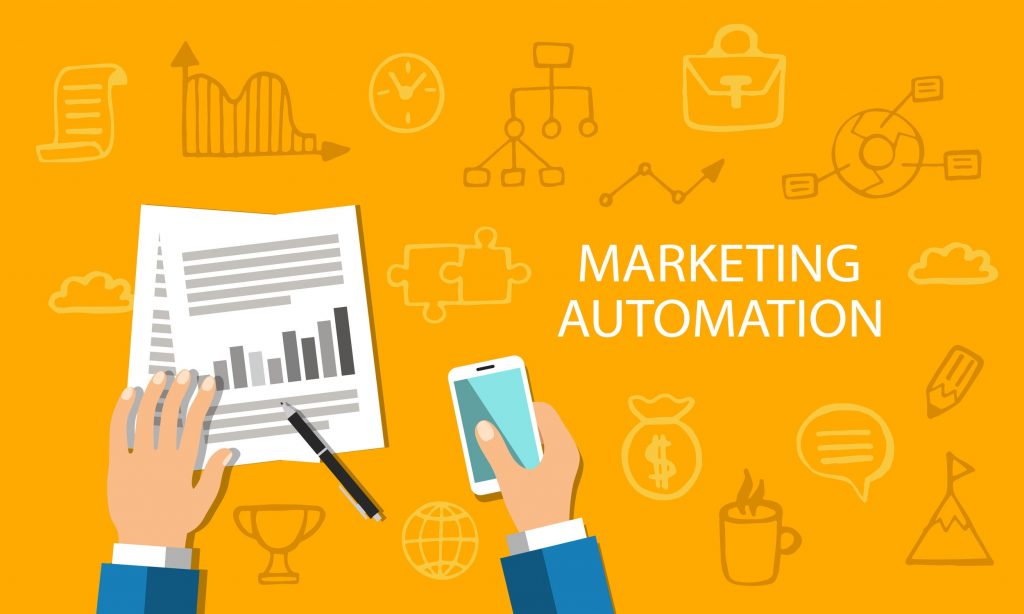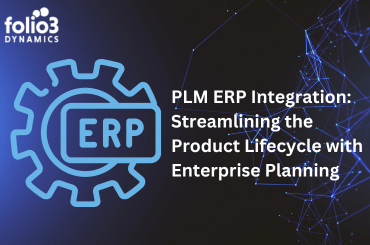Digital marketing has transformed the way businesses view or conduct marketing. With the cutting-edge technological tools and techniques, digital marketing has opened up massive opportunities for businesses to reach out to their customers and score more leads.
However, the increase in the digital marketing channels hasn’t come easy on marketers and they are under ever-increasing pressure to handle and manage complicated marketing processes. The never-ending task lists can be too overwhelming for marketers to effectively control and manage the campaigns.
Fortunately, in the last decade, many tech tools have helped simplify the marketing tasks for marketers and businesses. However, these techniques have also increased the customers’ expectations – making them too lured to keep looking for better and more customized campaigns to get moved.
One technology that in particular has vastly improved the marketing process for businesses is marketing automation. If you are also looking for modern ways to improve your business marketing campaigns keep reading as below we go through all you need to know about the marketing automation system. We will also be looking at popular marketing automation platforms and various marketing automation services that can help you achieve higher ROIs through integrated marketing campaigns.
What is Marketing Automation (MA)?
In the simplest words, marketing automation encompasses all the marketing efforts, and campaigns that are designed and implemented using automated software. The marketing campaigns and tasks are generally triggered as a response to a customer’s action. For instance, making a purchase, signing up for a newsletter, filling out a form, or others.
The simplest example of marketing automation software is when you receive an instant confirmation email once you purchase an item from an ecommerce store (even at midnight). Well, obviously there isn’t a poor customer representative sitting at the other end of the network at midnight, just waiting for someone to make a purchase so he could send him a confirmation email, is it?
No, instead that company has preconfigured some code (pre-written script) that is automatically sent out to the customers once they complete a certain task in the store. We will be covering email marketing in more detail below.
Nonetheless, email marketing isn’t the only type of marketing automation, rather there are various other types of marketing automation tools that help businesses to automate marketing campaigns across multiple channels like SMS marketing, Paid promotions, social media marketing, and others. Also, there are expert marketing automation consultants that can help businesses choose the right automation tools to meet the unique marketing requirements of businesses.
Now, just to give you a perspective, over 70% of leading marketing agencies are using marketing platforms to achieve higher ROIs for their clients.
Now, while marketing automation tools certainly make marketing campaigns a lot more convenient and responsive for businesses, these are still no replacement for the human touch. That’s because while the automated bots can certainly improve the customer support experience by offering them 24×7 support, most customers can read between the fine lines of an empty pre-written script shared by a bot or a compassionate reply by a real human. Also, the key to success with all marketing automation tools lies in the successful planning and implementation of the campaigns, which again is something that only the best marketing automation consultant (a human) can perform.
Ok, now let’s move on and see some of the popular types of marketing automation…
Types of Marketing Automation
Ok, as we briefly mentioned above, marketing automation isn’t any standalone technique, rather it can take many forms. Below are some of the commonly used types of marketing automation that greatly assist businesses to improve the marketing ROIs.
-
Email Marketing Automation
Email marketing is undoubtedly one of the most preferred direct marketing techniques that yield the highest ROIs when used intelligently. It is also one of the most widely used cases for marketing automation. Email marketing automation is used by businesses at all stages of customer engagement from welcome emails, to order confirmation emails, and from promotion emails to re-engagement emails, there are various use cases of email marketing automation.
Email automation is mostly triggered by an action or time. For instance, time-based emails are sent to customers on special occasions like holiday sales, customers’ birthdays, and others. Whereas, action-based emails are triggered when the customer takes a specific action like making a purchase, registering for the newsletter, signup for promotion, or other actions.
Email marketing automation enables businesses to keep customers engaged either by offering them promotions or by re-engaging them from where they were lost. For instance, if a customer adds multiple products to the shopping cart but doesn’t checkout to complete the purchase the system will trigger an automated email. In this case, an automated email may be sent to the customer reminding him about the forgotten items “abandoned cart”. Depending upon the business bottom lines, the email may have some promotion/discount offer to re-engage customers and have them complete the sales cycle.
-
Digital Marketing Automation
While email marketing may be the most widely implemented use case of marketing automation, it certainly isn’t the only one. Let’s look at some of the other widely popular forms of digital marketing automation types.
-
Social Media Marketing Automation
Any marketing professional associated with social media marketing must be aware of the resource and time-intensive nature of the social media marketing campaigns. Over the years, social media platforms have become the top marketplaces for businesses to build their brands, and interact with customers. However, the key to achieving higher ROIs with social media marketing lies in checking all the right boxes (which are quite a few, to be honest).
Fortunately, marketing automation can help marketers get over their jobs efficiently. Tools like HootSuite, HubSpot, and others enable marketers to schedule content across multiple social media platforms, put in place monitoring filters, as well as, automate the response process. All of this vastly improves the brand’s ability to project themselves correctly over multiple platforms and achieve business bottom lines.
-
Advertising Automation
Ever heard of retargeting – a high-performing marketing technique that targets customers who have previously shown interest in your product/services. Now imagine, if you have to perform all the related tasks manually involved monitoring all advertising platforms, and changing the timing, graphics, and content of the ad, wouldn’t that be too much?
Retargeting is a prime example of advertising automation, where the system automatically identifies the customer behavior and transforms the ad strategy accordingly. This means that your ad will only be shown to the customer who has previously shown interest in the product/service you are offering, thus greatly improving the ROIs for businesses.
-
Mobile Marketing Automation
SMS marketing is fast becoming a popular choice for effective mobile marketing campaigns. Thankfully, marketing automation can help businesses automate the SMS campaigns just like emails can be triggered against an action or time. The best part, it tends to have better open rates as compared to emails.
How is Marketing Automation being used?
From digital marketing to email marketing, and push notifications, marketing automation tools are increasingly assisting businesses to streamline their marketing processes and make them more productive. The marketing automation tools are being used by businesses to identify, monitor, and improvise customers’ online behavior and purchase patterns. This subsequently helps businesses to improve the marketing campaigns in line with customer’s preferences to achieve higher ROIs.
Benefits of using Marketing Automation
Ok, now that we are done introducing marketing automation, discussing marketing automation types and how it is being used by businesses, let’s discuss some of the benefits of using marketing automation for businesses;
Improving customer experience
Perhaps one of the best benefits of using marketing automation tools is that it helps businesses to offer a superior customer experience.
With the marketing automation tools, you are able to identify and track customers’ online behavior and take necessary marketing measures accordingly; think action-based emails. With such personalized marketing campaigns, customers are attracted to take actions you want them to take like signing up for newsletters, re-engage their abandoned carts, browse web pages, and others.
According to statistics, businesses can increase their conversion rates by as much as 93% with highly personalized and customized marketing campaigns – that’s something phenomenal!
Increasing scope of campaigns
Another great benefit of marketing automation tools is that these tools enable businesses to enhance the scope of the marketing campaigns.
For instance, automated email campaigns (time-based or action-based) are much easier and effective as compared to manual emails, which would otherwise take a whole lot of time to accomplish.
This means that with marketing automation tools, you are able to vastly scale the scope of marketing campaigns beyond the limit of team size, thus covering customers at every stage of the buying cycle.
Reduced Cost
Marketing automation tools not only help businesses to boost the effectiveness and efficiency of marketing campaigns but also enable you to significantly reduce the cost of marketing.
With the marketing automation system implemented, you can automate repetitive marketing tasks without having to employ more staff. This not only enables you to improve the efficiency of marketing processes but also cuts costs on the staff salary.
Reporting and Staff Accountability
Marketing automation tools come with dynamic and robust reporting features that instill a sense of accountability in the team. The reporting features offered by marketing automation tools don’t just help you to keep up with the performance of marketing campaigns, but also enable you to keep a close check on the performance of employees.
With detailed and interactive reports, you are in a better position to keep a vigilant check on the performance of the marketing campaign and see if these are helping you achieve designed metrics. This also gives you a unique chance to identify low-performing campaigns and make necessary changes to improve the campaign’s ROI.
Increasing average order value
Last but not least, marketing automation tools help businesses to improve their revenues by increasing the average order value.
According to statistics, personalized products recommendation is one of the most effective upsell and cross-sell approaches to increase the average order value. By sending personalized recommendations through emails, or websites, businesses can entice customers to add more products to the cart; subsequently increasing the average order value.
Disadvantages of Marketing Automation
Well, just like all other things in life, marketing automation isn’t all sunshine and rainbows. In the real world, many businesses struggle greatly to leverage full potential from marketing automation software, due to one reason or another. Below are some of the common reasons that lead to marketing automation failure;
Poor deployment
One thing that frustrates many businesses regarding the implementation of marketing automation tools is the time and costs, which often go way higher than anticipated. Implementing marketing automation software requires a higher level of technical expertise to ensure a smooth implementation process. That’s one reason why businesses are always recommended to go with trusted software and a reliable implementation partner. Getting started with marketing automation software also requires at least some level of expertise, thereby you should expect some delays and chalk out time for learning, as well as trial and error.
Poor strategy
Too often businesses jump on to marketing automation software without any definitive marketing strategy, thinking as if some miracle will take care of everything. Well, that’s a big mistake that will cost you money. There is simply to point investing in implementing marketing automation tools before you have a definite and clear-cut marketing strategy. In fact, you can only exploit that much potential from the marketing automation software as much as you invest in the marketing strategy.
Process inefficiencies
Another common problem that leads to failure in effective utilization of marketing automation tools is having inefficient business processes. Again, like poor marketing strategy, if your business processes aren’t efficient and streamlined, you won’t be able to leverage the full potential of marketing automation software.
Also, if your people aren’t fully trained, and churning out desired output, marketing automation tools won’t miraculously solve your problems. Instead, inefficient and disjointed processes only increase the likelihood of errors, make it difficult to collaborate between teams, and get desired value from business processes. To put it simply, think of marketing automation as your business engine, whereas, the people and processes are the fuel that powers the engine. So, the engine will perform only as well as the fuel used to power it.
Steep learning curve
Integrating new technology is never a streamlined process for businesses. In fact, the biggest resistance to the adaptation of new technology is from the people, who are too afraid of leaving the legacy system and adapting the new systems. Most of the time the resistance stems from the fear of not being trained on the new system.
Just like other technologies, the implementation of marketing automation software requires business leaders to invest time and resources to train their people. The complexity of the marketing automation tools means a steep learning curve for your people, which translates into stressful initial months as you take your people on board with extensive training and trial & error. It’s important to give your people time and training to get fully familiarized with the tools and processes, so as to optimally use the tools in the future.
Also, make sure you have in place the right integration arrangements of marketing automation tools with existing systems and software. Most of the time you would need to hire professional marketing automation implementation partners to help you with their expertise and knowledge. Remember, getting it right the first time is important to save on costs and frustration in the future. So, make sure you choose the right implementation partners.
CRM vs. email marketing vs. marketing automation
The fundamental difference between CRM vs. email marketing vs. marketing automation tools is the problems that each of these tools solves.
- Marketing automation – refers to the tools that assist businesses to automate and streamline their marketing campaigns for better personalized and focused marketing actions.
- Email marketing – Email marketing is one of the most powerful direct marketing strategies that help businesses to reach customers in a personalized and cost-effective manner. It’s important to note that email marketing does feed into both, marketing automation, and CRM.
- Customer relationship management (CRM) – CRM refers to a business management system that helps businesses keep up with their interactions with existing and prospective customers.
Yes, while these three are different pieces of software, they considerably overlap in their functions.
Each of the three systems works in harmony with others to achieve the specific business goal – helping businesses to gain marketing qualified leads (MQLs) and convert them into purchases.
To keep things in perspective, the marketing automation tools help businesses to feed the sales pipeline, whereas, email marketing helps to reach out to existing and prospective customers with personalized marketing messages. Last but not least, the CRM system synchronizes the sales and leads information from marketing automation and email marketing, to give businesses a complete picture of their marketing efforts.
Marketing automation vs sales automation
Now, let’s take a look at how marketing automation and sales automation differs with each other by looking at the end goal of each technology from difference business’s viewpoint;
- Purpose – The purpose of marketing automation is to create leads, whereas, the purpose of sales automation is to close deals
- Actions – The marketing automation actions include building a broader client-based and nurture leads, whereas, the sales automation actions include tracking lead scores and closing leads
- Components / Tools – Some of the tools used for marketing automation include; CRM, content, social media, and emails. The tools for sales automation includes; CRM, emails, and calls
- Responsibility – The fundamental responsibility of marketing automation is to optimize marketing flow, whereas, sales automation is more concerned with making calls to schedule meetings
- Implementation stage – marketing automation is required by businesses at all stages (new, expanding, established), whereas, sales automation isn’t recommended for new businesses
Marketing automation vs campaign management
Marketing automation refers to the implementation of tech tools to streamline and automate overall marketing strategy for a business, in a bid to make marketing more effective and productive. Contrarily, campaign management is more about planning, executing, monitoring, and tweaking marketing campaigns.
Best Marketing automation software 2022
-
Moonsend
Moonsend is perhaps the most understated email marketing solution that brings in a whole lot of features for businesses to streamline and automate the process of email campaigns. The segmentation tool offered by Moonsend enables businesses to design and execute highly personalized email marketing campaigns that result in higher conversion rates.
-
GetResponse
GetResponse is yet another robust and affordable marketing automation software. It’s one of the few software that’s equally effective for SMEs, as well as, enterprises. The software is currently being used by over 350,000 businesses around the world to automate and streamline their marketing processes.
-
ActiveCampaign
ActiveCampaign is effectively one of the most comprehensive marketing automation software that offers businesses complete marketing automation tools including, email marketing software, and small business CRM. It’s also highly popular among small businesses given its affordability as compared to some of the other marketing automation giants like Ontraport, or Infusionsoft.
-
Drip
Drip is a specialized ecommerce marketing automation software that helps businesses learn more about customers and design effective personalized marketing campaigns to improve customers’ shopping experience.
-
Gist
Gist is another powerful and comprehensive marketing automation software that brings marketers everything they need to successfully design, implement, and manage marketing campaigns across many channels. The software help marketers automate the entire journey of customers from introducing the business to prospective leads to converting them into customers and engaging with customers to encourage repeat purchases.
Top marketing automation tools
-
Marketo
Marketo is a well-established marketing automation tool in the industry for good reason. It is one of the earliest and mature marketing automation tools that offers a complete suite of features to help businesses manage all aspects of marketing campaigns. Also, the tool includes some top-notch features for the sales team, thereby, giving it an edge over other marketing automation tools.
-
Eloqua
We like to term Eloqua as the Ferrari of the marketing automation industry. Eloqua is a feature-packed tool that delivers an exceptional level of service and functionalities to businesses. The best part about Eloqua is the amount of time and resources they spend to ensure their customers are well-versed with all the functionalities of the tool and are able to optimally utilize the tool.
-
Customer.io
Customer.io is yet another great marketing automation tool that is known for its flexibility. A powerful yet convenient tool, it helps businesses to achieve whatever they want. Also, it comes with an exceptionally simple and light User-interface, which makes it easier for businesses to train their people and get started with the tool faster.
-
Constant Contact
Constant Contact is a specialized tool built for effective management of email marketing. It’s an ideal tool for small businesses looking to penetrate the market with effective and efficient email marketing campaigns.
-
HubSpot
HubSpot is undoubtedly one of the most widely used and hugely popular all-in-one marketing automation tools. The software is both liked and disliked for the reason that it does a little bit of everything, however, doesn’t go at the deep level for any specific purpose.
Conclusion
Well, we believe that by now you must be much aware of the potential and capabilities of marketing automation solutions for businesses. To put it in perspective, marketing automation brings businesses the tech advantage they need to analyze and process massive data regarding customers’ online behavior and preferences, thereby helping you to create enchanting, and personalized marketing campaigns to improve your conversion rates.
So, whether you are a new startup or an established business looking to penetrate deeper into the market, marketing automation can help you reach out to more customers with a personalized strategy that builds your brand, as well as, help you score more sales.





